If you enjoy working with your hands, are organized and detail-oriented, and like the idea of being a cog in a great big machine that moves other cogs, then you might want to consider a career in transport and logistics. This industry is booming, offering job opportunities across all sectors. Whether it’s shipping by air or sea or hauling freight on the road, there are loads of different roles for people who are interested in transport and logistics. And if you have experience of driving HGVs or another heavy vehicle as well as an associate’s degree, you could also train as a driving instructor. In this article, we look at some examples of transport & logistics resume and cover letter templates to help you land your dream job.
Transport & Logistics Resume Example

Download This Transport & Logistics Resume as PDF
Dock Worker Resume Example
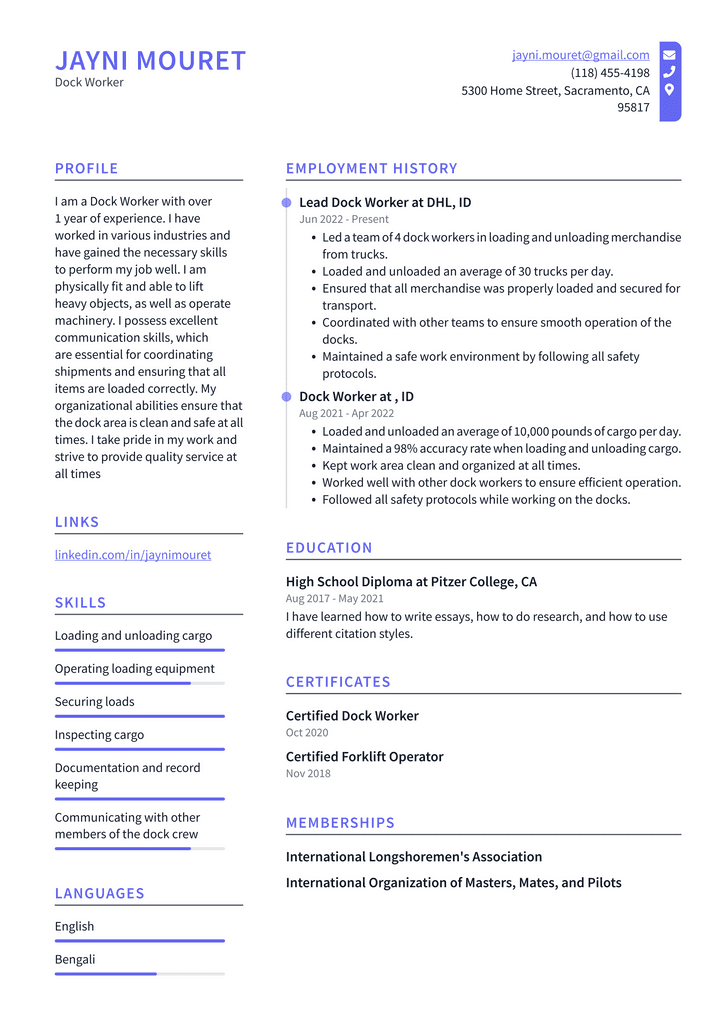
Download This Dock Worker Resume as PDF
Driver Resume Example
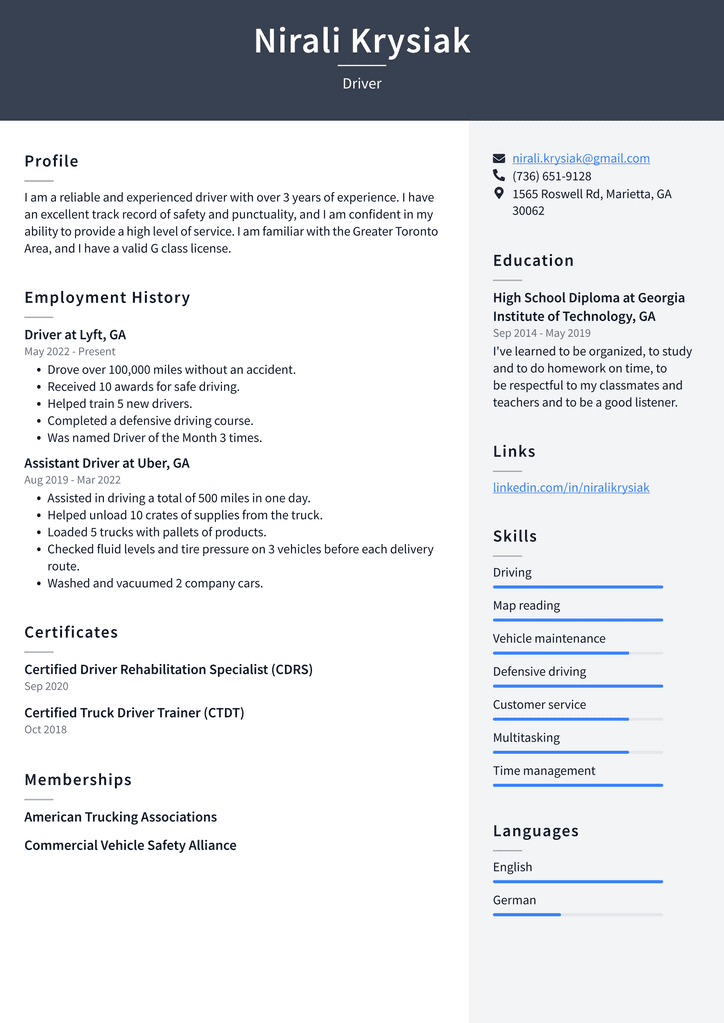
Download This Driver Resume as PDF
Package Handler Resume Example
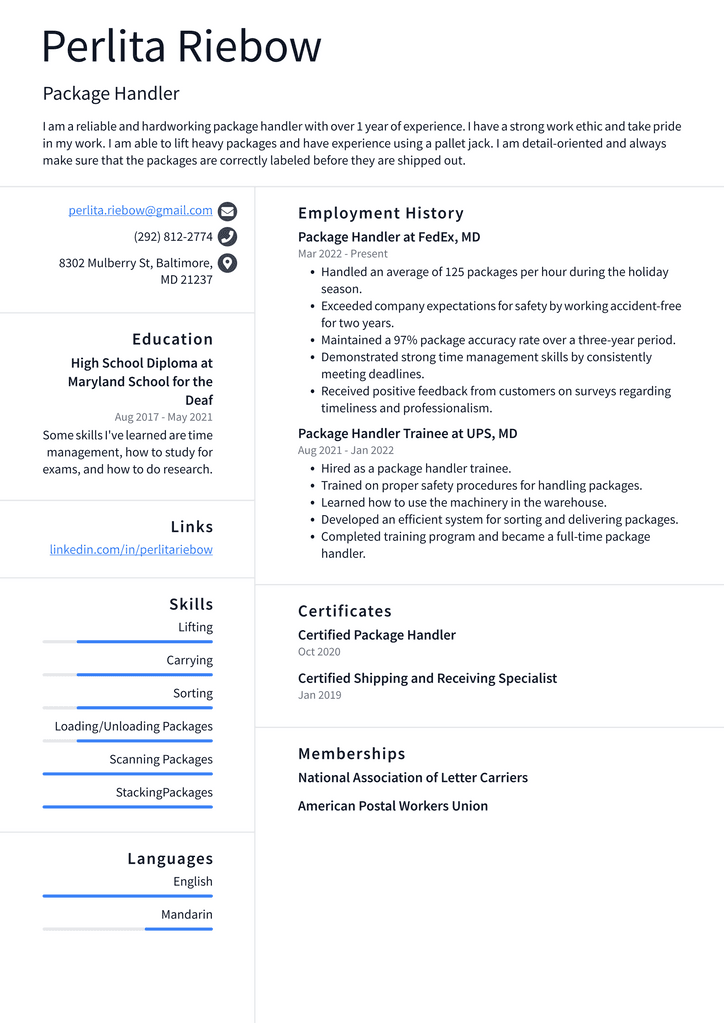
Download This Package Handler Resume as PDF
Truck Driver Resume Example
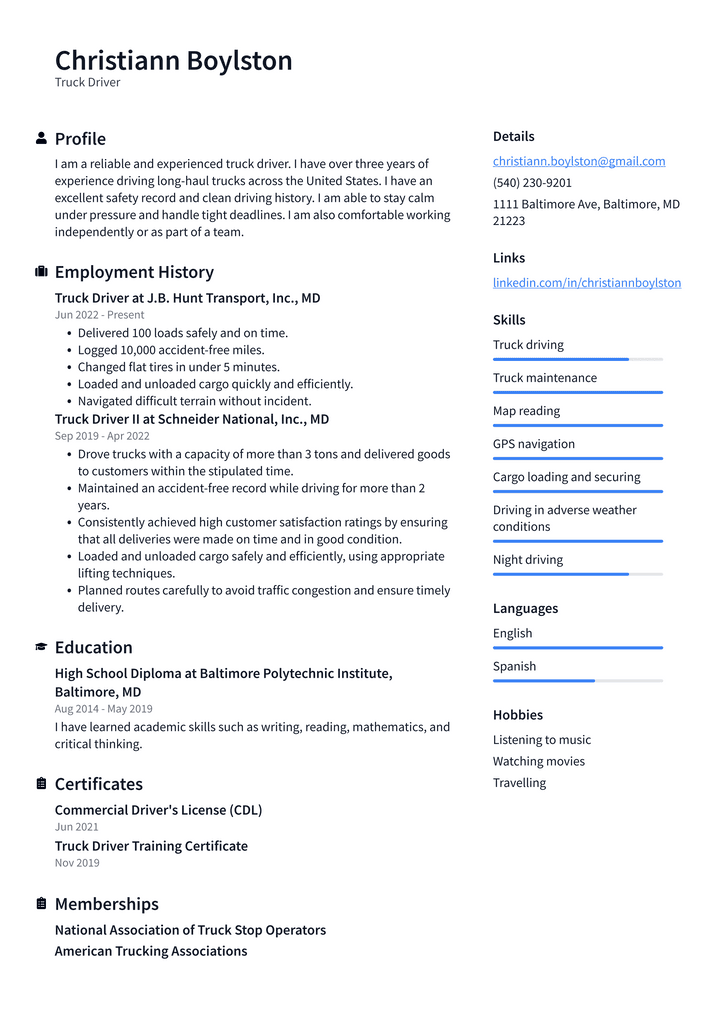
Download This Truck Driver Resume as PDF
Warehouse Worker Resume Example
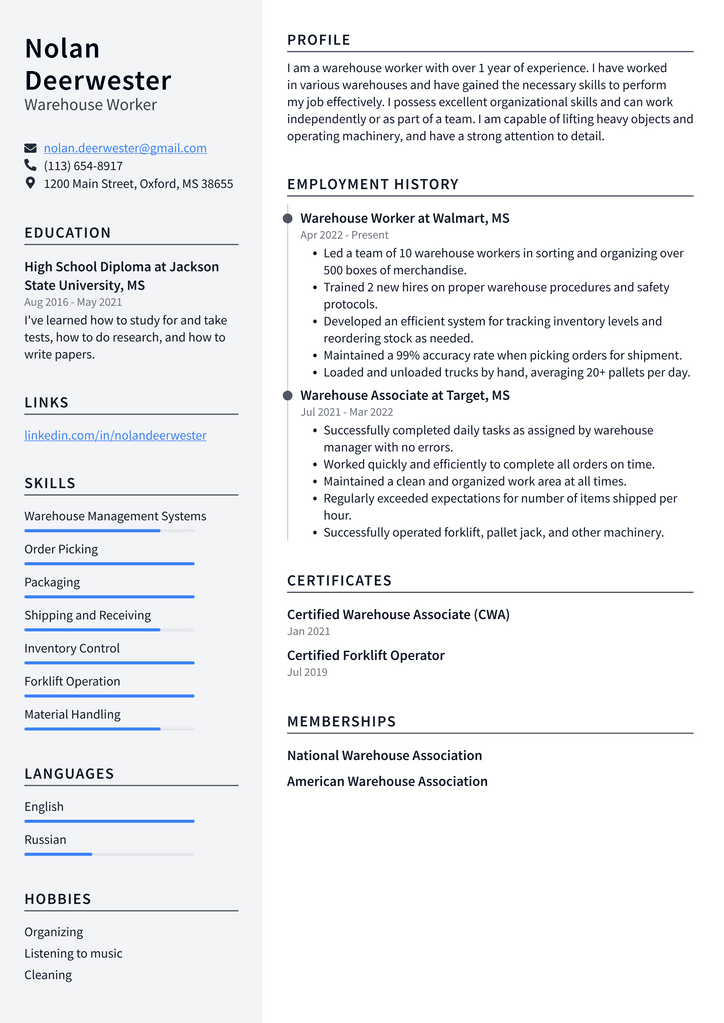
Download This Warehouse Worker Resume as PDF
Delivery Driver Resume Example
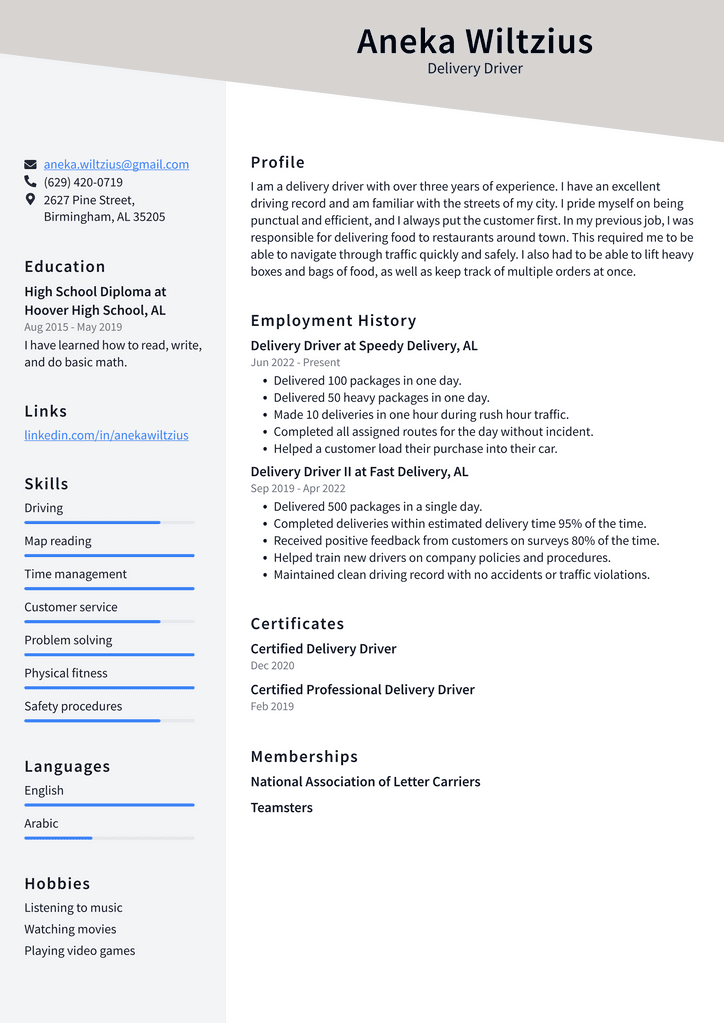
Download This Delivery Driver Resume as PDF
What is a Transport & Logistics Resume?
A transport and logistics resume is a document that outlines your professional experience and qualification to help you land a job in the transport and logistics industry. Resumes are used by all industries and sectors, so you’ll need to tailor your resume to the job you’re applying for. If you are applying for a job in the transport and logistics industry, you may also come across the term “transportation” or “transportation management” resume. The terms are used interchangeably and refer to the same thing: a document that details your skills and experience in one or more areas of the transport and logistics industry.
Why is the transport and logistics industry booming?
The vast majority of us need to move goods from A to B in the course of our daily lives. Whether it’s groceries, electronics, or a new sofa, almost everything we own will have been transported at some point in its life. Transport and logistics are vital parts of the economy, and as global trade increases, so too does the demand for efficient and cost-effective ways to move goods around. As the world’s population rises, and people become wealthier, they buy more goods. This increases demand for transport and logistics services and creates new jobs in the industry. The transport and logistics industry is also at the cutting edge of technology. This is helping to drive productivity and fuel further demand in the sector.
Hiring requirements for transport and logistics roles
When you get right down to it, there aren’t any specific hiring requirements for transport and logistics roles. However, there are a few key requirements that a truck driver resume, for example, will almost certainly have: a clean driving record, a valid license to operate a commercial vehicle, and the ability to lift heavy loads. This is because operating a commercial vehicle involves more than just driving – it’s about knowing all the rules of the road and how to obey them correctly. A hiring manager for a transport and logistics company will want to know what your experience and qualifications are and how they apply to the job. A hiring manager for an air cargo company will want to know if you have ever worked with air cargo and how your skills translate to their industry.
Diving into more detail: what does a transport and logistics worker actually do?
Transport and logistics professionals are responsible for moving goods from one place to another. There are varying levels of specialization within this broad field of work, including: Transportation: Shipping goods by sea, road, or air. Warehousing and storage: Moving goods to and from distribution centers. Distribution: Getting goods from warehouses to retailers or customers. Shipping, warehousing, and distribution are sometimes grouped under the term “logistics” or “transportation and logistics”. This section looks at the different types of transport and logistics workers and how they do their jobs. – Air cargo agents and logistics specialists: Working for an airline or handling air cargo for an aviation company, you’ll be responsible for managing the flow and booking of inbound and outbound shipments. – Shipping and receiving specialists: Working for a company who has a lot of inventory, you’ll get the goods in and out of the warehouse and onto shelves or onto delivery trucks. – Transport truck drivers: You’ll drive around the country or across borders with goods in the back of your truck, whether that’s food, hardware, or anything else. – Taxi and other car drivers: You’ll haul passengers and their luggage to their destination. – Rail transport and logistics workers: You’ll work on the railways, checking and loading freight, making sure it’s secure and ready to go. – Warehouse and distribution managers: You’ll be responsible for making sure the supply chain is moving and your warehouse is running smoothly.
Key Skills for Transport & Logistics Workers
There are lots of different areas you can specialize in within the transport and logistics industry. Whatever type of transport and logistics job you’re applying for, you’ll need certain skills. – Attention to detail: There are lots of moving parts in the transport and logistics industry, and logistics professionals need to pay close attention to every one of them. – Strong organizational skills: Working in transport and logistics means managing lots of different pieces of the puzzle. – Vision: You need to be able to see the bigger picture and understand how what you’re doing fits into the workflow of the whole organization. – Problem-solving skills: Transport and logistics professionals are often the first to notice when something isn’t going according to plan. You’ll need to be able to identify the problem and find a solution quickly. – Communication skills: You’ll need to be able to communicate clearly with other team members, clients, and vendors. – Attention to detail: You’ll need to pay attention to regulatory and safety compliance.
The Bottom Line
The transport and logistics industry is booming, and it has been for decades. This is a great industry to work in, especially if you enjoy working outdoors and being part of a huge machine that transports people and goods across the globe. If you’re interested in working in transport and logistics, you’ll need to make sure your resume reflects your skills and experience and address any shortcomings in your qualifications.